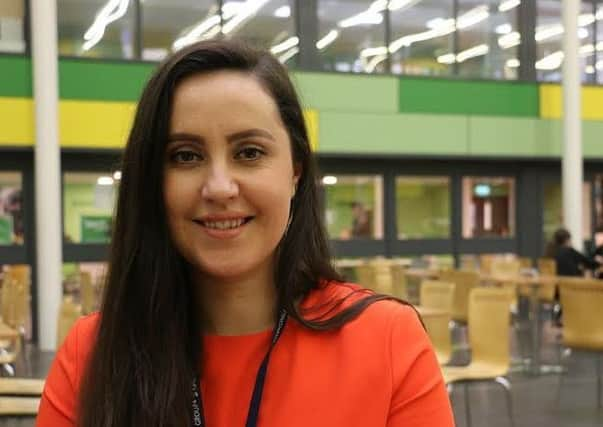COLUMN: Anyone could be victim of online abuse


Thankfully Molly, who has learning difficulties, was found safe and well, and reunited with her family.
The ordeal prompted her father, Antony, to warn other parents about the dangers young people are exposed to on the internet.
Advertisement
Hide AdAdvertisement
Hide AdHis stance was praised by the NSPCC charity, which declared “keeping children safe online is the biggest child protection challenge of this generation.”
While nobody can deny the countless benefits of the internet, the online environment is also rife with potential hazards – from hacking, and access to inappropriate content, to cyber-bullying, exploitation and grooming.
According to the NSPCC, one-in-five children aged eight to 11, and seven out of ten children aged 12 to 15, have a social media profile. And there were more than 11,000 counselling sessions with young people who talked to Childline about online issues last year.
Indicators of online abuse include a person being withdrawn, secretive about who they are talking to and what they are doing on their phones, laptop or tablet; spending excessive amounts of time texting, gaming or using social media; and having lots of new phone numbers, texts and email addresses on their devices.
Advertisement
Hide AdAdvertisement
Hide AdWithin college, we have a dedicated safeguarding team that works with staff and students to constantly update them on new and emerging risks. Due to the ever-changing nature of the online world, promoting internet safety is an increasingly important part of our work.
We do this in a variety of ways so that students embed this ethos into their everyday lives. Activities range from poster campaigns to tutors giving practical advice as part of lesson-based tutorials. Last month, Pintsize Theatre Company performed their educational play ‘LUVU2’ in our Create Theatre, followed by interactive workshops.
Meanwhile, the student experience team will be supporting Safer Internet Day on Tuesday February 7, by raising awareness about the importance of using privacy settings on social media accounts.
Sadly, too many people believe they are somehow immune to online dangers, thinking “it won’t happen to me”. The stark reality is that anybody can fall victim. Fortunately, there are things we can all do to protect ourselves, and our children. For example, be careful what you share online – once you post a photograph or personal information, they’re no longer private. If you receive a friend request on social media from someone you don’t know, ignore them and delete it. And never, ever meet people you don’t know – regardless of how well you appear to get on with them online or on social media.
Above all, report anything suspicious.
For further information visit www.ceop.police.uk.